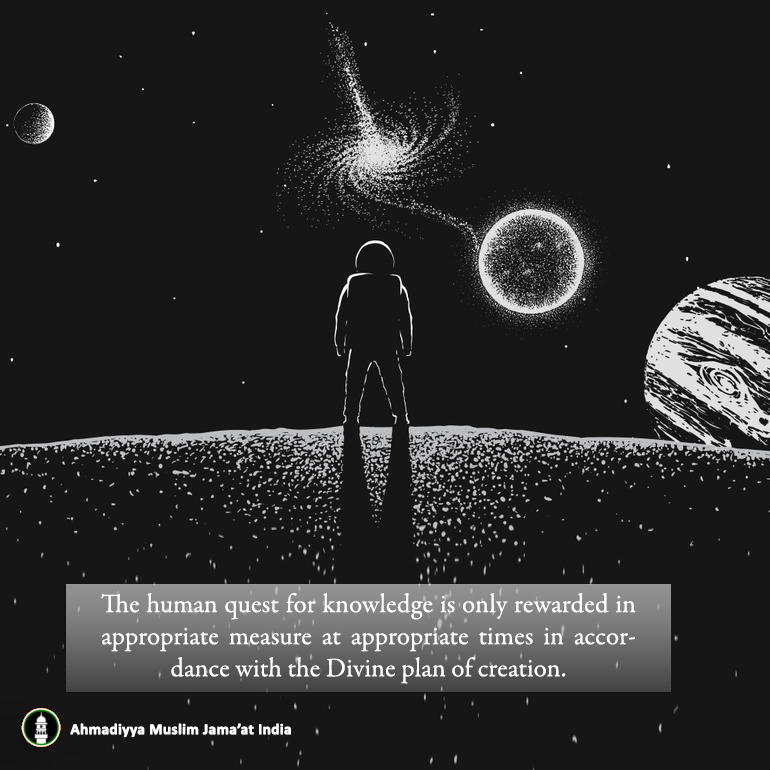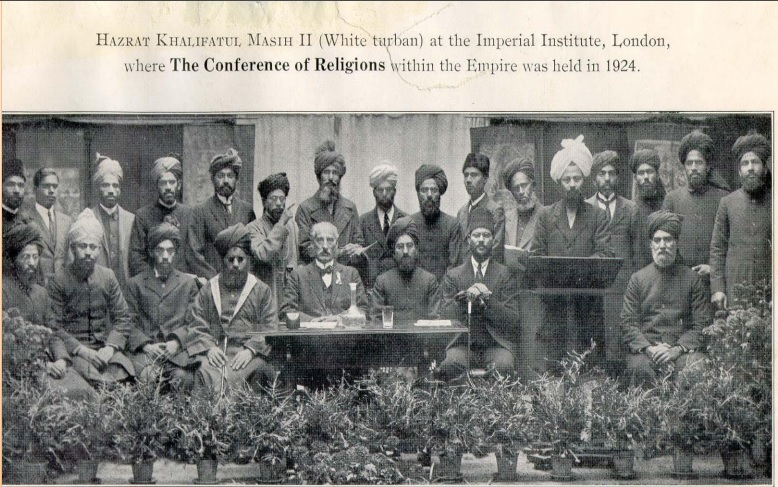Thread
“Belief in the Unseen”
"ایمان بالغیب"
From the book
“Revelation, Rationality, Knowledge & Truth”
“Belief in the Unseen”
"ایمان بالغیب"
From the book
“Revelation, Rationality, Knowledge & Truth”

To believe in the unseen is a fundamental constituent of the Muslim faith as mentioned in the verse ... it is a guidance for the righteous, Who believe in the unseen...(2:3-4) 

The lack of knowledge about things does not necessarily mean that they do not exist. They may exist, but lie hidden behind the veil of the unknown. 

Either through the course of human investigation or through the agency of Divine revelation, things emerge from the realm of the unseen to that of the seen.
The term 'unseen' in its wider application is employed to cover everything which is not directly visible or audible. Likewise it also covers all that is not directly accessible through other human sensory faculties. 

We are required to believe in the existence of things which are not known at a given point in time, but do exist and may become known at another point in time.
The Quran does not require the believers to have faith in anything which is not supported by irrefutable arguments. Hence the unseen covers only such things as may become accessible through the instruments of reason, rationality and deductive logic. 

The unseen as defined, though not directly perceivable by the senses, is yet verifiable.
Mind is the ultimate entity of life, which receives and computes all messages transmitted to it by the senses through the computer of the human brain. It transcends the brain and manipulates its operation. 

The mind learns to believe in the unseen entirely through hypothetical exercises, while at other times it examines and sifts material data and draws logical conclusions from them.
The hidden knowledge within the realm of the unseen is also accessible through revelation.
The domain of God's knowledge transcends time and space but that of human knowledge cannot. Hence all the knowledge that lies beyond the reach of human faculties can only be obtained by means of Divine revelation. 

The knowledge granted to the non-messengers, through revelation, can in no way be matched in clarity, certainty and perfection with that bestowed upon the messengers of God. 

The world of the unknown is boundless and fathomless, yet man will always be permitted access to it, but in measured portions which will be estimated by God in accordance with the requirements and dictates of the time. 

Quranic terms of 'the unknown' and 'the unseen' do not in any way encourage blind faith and ignorance. On the contrary, they promote perpetual investigation by assuring man that what he knows and observes as reality is but infinitesimally small in proportion to what he knows not. 

What we know today is perhaps a billion times more than what we knew a thousand years ago. What we shall know a thousand years from now, may well be a billion times greater than what we know today.
When the Quran speaks of the hereafter and warns man that he cannot truly understand the nature of what is being described, it is the inadequacy of man and not that of God. 

Whatever the belief in the unseen is, it is certainly not a belief in nothingness. A belief in nothingness is only a rejection of the belief in the unseen.
The human quest for knowledge is only rewarded in appropriate measure at appropriate times in accordance with the Divine plan of creation. 

When a new idea emerges from the realm of the unseen, it is always put to the test of rational scrutiny or experimental trial whenever possible. Having survived this scrutiny, age after age, it can be categorized as absolute truth. 

The validity of Divine revelation does not essentially depend on subjective secular evidence alone.
#Islaminindia #Islam #Quran #Revelation #Rationality #Ahmadiyyatthetrueislam #KhalifaofIslam #Ahmadiyya #FridayMotivation #FridayThoughts #unseen #God
alislam.org/library/books/…
alislam.org/library/books/…
• • •
Missing some Tweet in this thread? You can try to
force a refresh

















